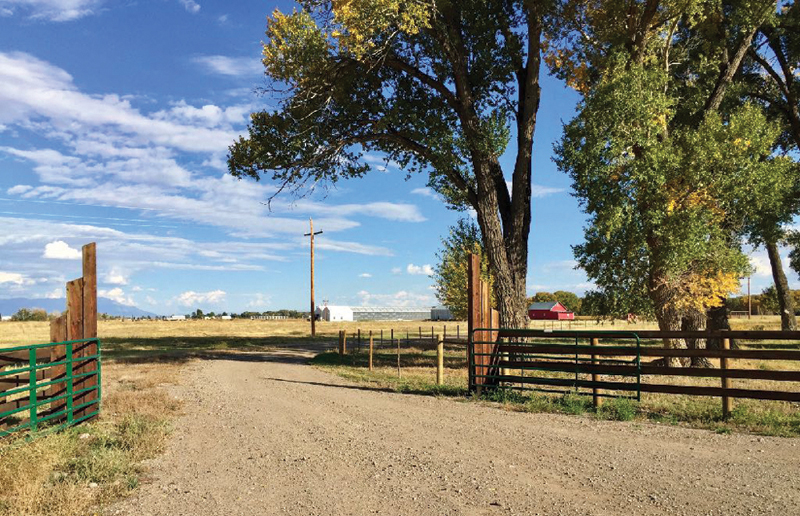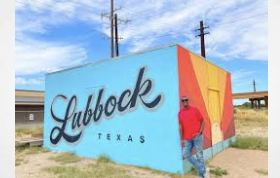Authored By: Teri Buhl for Cannabis Law Report
A real estate entrepreneur from Texas, Robert W. Mertz, is being accused of civil theft and conspiracy for keeping hundreds of thousands of dollars from the sale of unhealthy hemp clones to a Colorado farm and then using that money to improve his hemp farm infrastructure so the two year old farm could be flipped and sold.
In September, MTN Botanicals, based in Kersey Co., sued Mertz, his head grower, head of sales and the company which is known as National Hemp Exchange in Colorado district court in the county of Rio Grande. Since the lawsuit the entire crop of clones sold by National Hemp Exchange, worth around $600,000 resulted in a loss and MTN Botanicals now wants triple damages. The lawsuit accuses Mertz of basically running his hemp farm as a Ponzi scheme.
National Hemp Exchange was started in Monte Vista, CO. with a group of Texans assembled by Mertz.
Ron Jones, a landscaper, was brought on as the company’s head grower. Jones has a son who suffers seizures and found Colorado a friendly state to allow his son to take medicinal cannabis. Mertz also found a young charming sales person, Austin Buckingham, to sell highly sought after strains of hemp clones to small farmers from Colorado to California. The 40-acre farm in the San Louis Valley, of Southern Colorado, has the capacity to produce 1 million clones a season, according to Buckingham, but sales in 2018 were less than 500,000 for $1.2 million of revenue. Mertz actually owns the land the farm sits on, held in the Mertz Robert W. trust. Ron Jones told a client interviewed by Cannabis Law Report that when he first got to the farm it was infected with “pests”. Jones worked diligently to clean up the farm and develop CBD oil products, which include crude industrial oil on top of growing hemp plants. Hemp clones are hemp plants that have been grown from cuttings from a “mother” plant as opposed to having been grown from seed.
VIDEOS
Highlights visiting the national hemp exchange in Colorado. Jun 21, 2019
Root Pouch visits National Hemp Exchange & Interview Austin Buckingham “Marketing Director” National Hemp Exchange . 19 November 2019
Michael Lennon and J.J. Southard, who co-run MTN Botanicals, are long time Colorado residents with a decade of experience in the cannabis business. They were able to raise $2mn in about a month with the help of a private equity institutional investor to build out their new hemp farm. Their strategy was to wholesale cbd products and also be a supply chain for consumer food companies the Private Equity firm had also invested in.
Early 2019 Lennon and Southard interviewed various hemp clone farms and decided on working with National Hemp Exchange because of a strain named The Wife and Cherry that NHE claimed to have a high CBD quotient and low THC percentage .
The original order was negotiated for a large bulk order of 500,000 clones for $1.2 million but on subsequent visits to National Hemp Exchange farm Southard realized NHE wasn’t properly set up to handle his order and reduced the number of clones by half for a payment of $590,000. The all cash payment was made by June with a goal that the clones would be delivered and in the ground by July 4 2019.
The clones National Hemp Exchange sells are called Cherry, The Wife, and Cherry Wine and sell for an average of $4 a clone, according to Buckingham. Because the size of the MTN Botanicals order was so large they negotiated a price of $2.75 per clone for the The Wife and Cherry strain. The size of the reduced order was still going to take up most of NHE’s capacity, according to Southard based on his site visits and experience in farming.
National Hemp Exchange didn’t manage to make the delivery date and Southard and Lennon became worried NHE had sold their healthy clones to someone else. In fact after National Hemp Exchange received MTN Botanicals money Southard and Lennon made a site visit in July to NHE’s farm. What they saw surprised them. New extraction equipment was seen on site and workers at the farm were acting in an odd manner trying to not allow Southard and Lennon to see a new indoor growing area.
THE LAWSUIT
The lawsuit brought by MTN Botanicals accuses Mertz, Jones, and Buckingham of knowing that they were unable to provide the clones that MTN Botanicals was seeking, and never intended to provide them.
Instead, MTN Botanicals asserts they had an agreement amongst themselves at NHE to defraud and steal from MTN Botanicals, and they fully intended to delay MTN Botanicals and their deal as a means of obtaining funds that Mertz could then employ to support other ventures and also to purchase property, extraction equipment, other equipment, and additional structures for an in-house grow, which were unrelated to any deal with MTN Botanicals.
The alleged scheme basically meant Mertz was fraudulently securing what amounted to a loan for almost half a million dollars with zero interest, without any disclosure to MTN Botanicals or any consent or authorization to keep or use MTN Botanicals’ funds in that manner, according the lawsuit filed by Nicole Westbrook, a partner at Denver-based Jones & Keller P.C. , on behalf of MTN Botanicals.
Mertz and National Hemp Exchange, which is represented by David Hunnum and Kayla Banzali of Colorado Springs based Robinson and Henry P.C., filed a motion to dismiss claiming the accusation of theft, fraud and conspiracy should be thrown out because this is nothing more than a breach of contract dispute. When reached for comment about the theft accusations attorney Hunnum told Cannabis Law Report , “the motion response speaks for itself. We firmly believe that the motion to dismiss will be successful.” Mertz nor his legal team would answer questions about the plan to sell his hemp farm which is one of the alleged central motivators to take MTN Botanicals money, build out their farm and try to make millions selling it.
J.J. Southard told Cannabis Law Report that National Hemp Exchange put them in touch with a close friend of Robert Mertz, a man named George Benda, who supposedly had had a large amount of seedlings available. MTN Botanicals didn’t do a deal with Benda but in conversation Benda told them that Mertz was actively trying to sell NHE and move its assets out of state; Benda said the potential deal was in the millions. Austin Buckingham later confirmed it with the MTN Botanical executives.
According to a public records search Mertz is in his 70’s and owns a home in the Bee Cave area of Austin with 5 bedrooms on a golf course. He has partnered in a home building business called Mertz Watson Custom Homes. His profile informs us of an “illustrious” family history that includes the building of railway stations and public libraries across the east coast dating back to the 1800s. He also has a business selling railway cars called Sterling Rail.
Mertz wasn’t physically present at National Hemp Exchange and often slow to respond in negotiations about refunding MTN Botanicals for the failed clones. The complaint details how Jones and Buckingham knew the plants they sold were sick and even tried to swap them out for healthy ones but the clones were still defective. Mertz claimed he had cancer at one point as a reason for not returning phone calls or emails about problems with his farm’s crop, according to Southard.
On top of receiving unhealthy and non-viable plants from NHE, MTN Botanicals also believes National Hemp Exchange was out buying clones from another Colorado hemp farm and passing them off as their own.
“Claiming to supply Premium Hemp Genetics, NHE boasted to have the varietals we were after… With experience growing these same varieties in the past, the clones that we did accept and attempt to plant showed immediate inconsistencies not signature of those varieties… poor vegetative growth, not acclimated to the Colorado climate, poor yields in flower and lower-than-expected CBD levels. We see why no Certificate of Analysis was provided at the greenhouse on test runs of their plants.”
Southard told Cannabis Law Report in a phone interview.
Austin Buckingham told Cannabis Law Report that they don’t do genetic testing on their plants because it is too costly but they do test for CBD potency and concentration.
In an interview with a person familiar with National Hemp Exchange CLR was told a farmer admitted selling NHE clones and believed NHE were reselling them to their clients at a mark-up and passing the clones off as ones they grew. This could be a reason that the clones’ genetics were not matching what was promised at the time of sale.
MTN Botanicals wasn’t the only farm that received unhealthy clones that died this year. Cannabis Law Report has also confirmed this week that another west coast farm lost 30 percent of their order from NHE. The farmer who asked to remain unnamed said they were extremely disappointed in how Mertz was conducting business with his hemp farm.
“We heard National Hemp exchange told potential customers they were able to produce 5 million clones. We upfront purchased 1.3M but then reduced the order as it was clear they would not be able to come close to even fulfilling a portion of our order. It was clear they oversold a dream and promise not just to us but potentially other farmers. The pure square footage and arithmetic did not add up to even fulfill our order and we were not the only customer. The inconsistency shows that it was intentional and fraudulent,”
Southard told Cannabis Law Report.
Given new facts have come to light since the original complaint was filed it is likely there will now be an amended complaint filed against National Hemp Exchange. Right now the case is waiting for an additional response from NHE and then the judge would rule on the motion to dismiss.
“The Defendants’ motions are merely another instance of Defendants attempting to avoid responsibility for their actions. There is no dispute that National Hemp Exchange did not perform as promised by fulfilling the significant order of clones placed by our client and that MTN Botanicals is still owed hundreds of thousands of dollars the Defendants misused for other business ventures. We are confident in the strength of our claims in this case and will continue to pursue all legal means to fight for our client’s rights and undo the harm that our client has suffered in this matter,”
Attorney Nicole Westbrook told Cannabis Law Report on behalf of MTN Botanicals.
Austin Buckingham has retained his own counsel, Colorado Springs based Justin Bailey of Sanders law. Bailey filed a copy-cat motion to dismiss for Buckingham which copied NHE’s text and arguments. Rob Jones wrote the court to join Buckingham’s argument. Jones has since left NHE and got a job with a farm in North Carolina. Buckingham still works for National Hemp Exchange.
If MTN Botanicals wins their lawsuit and the theft claim survives they could be looking at an award much larger than their investment because of Colorado state laws allows for triple damages.
Sources & References
The Attorneys
Attorney for MTN
The Compliant
Motion to Dismiss Mertz & Lone Star 11-13-19
I’m a professional financial investigative journalist who has written for the Greenwich Time, Hearst CT Newspapers, Forbes Magazine, Fortune.com, The Atlantic.com, New York Magazine, New York Post, Trader Monthly, Housingwire, ML-Implode, The Business Insider, Long Island Business News, Dealbreaker, New York Observer, Bitcoin Magazine, DealFlow Media, SIRF.org and more. For the last five years I have been a contributing reporter for Market Nexus Media who publishes a financial trade publication called Growth Capital Investor.
I earned my breaking/investigative news chops reporting during the financial crisis in 2008 for the Sunday edition of the New York Post. I was one of the first to report on the missteps at IndyMac that lead to government investigations and lawsuits against the banks founders. Caught hedge funds like Carrington Capital abusing investors without disclosing conflicts of interest with senior RMBS bond holders; they were sued by Wilbur Ross for Civil RICO. I exposed Bear Stearns misleading their own investors and monoline insurers on the quality of the loans in their mortgage-backed securities, which led to a fraud lawsuit against JP Morgan/Bear Stearns and the $13 billion settlement with the DOJ in 2013. Since 2010 multiple Wall Street firms, that my reporting warned about first, have been [JP Morgan, SpongeTech, Security Savings Bank, SAC Capital, Palm Beach Capital Management, New Stream Capital, NIR Group/Cory Ribotsky, Bear Stearns RMBS Traders, Mike Perry IndyMac CEO, Steven Muehler and the Nanocap MarketPlace, Barry Honig and The Frost Group] investigated or charged for financial violations by the FBI/SEC/State AG or shut down by bank regulators.
The Huffington Post named me the number three most dangerous financial journalist for being willing to challenge the establishment and inform readers best. I’m working on trade-marking “Smashmouth Journalism”
Read More About Teri’s Work At: https://www.teribuhl.com/about/



























